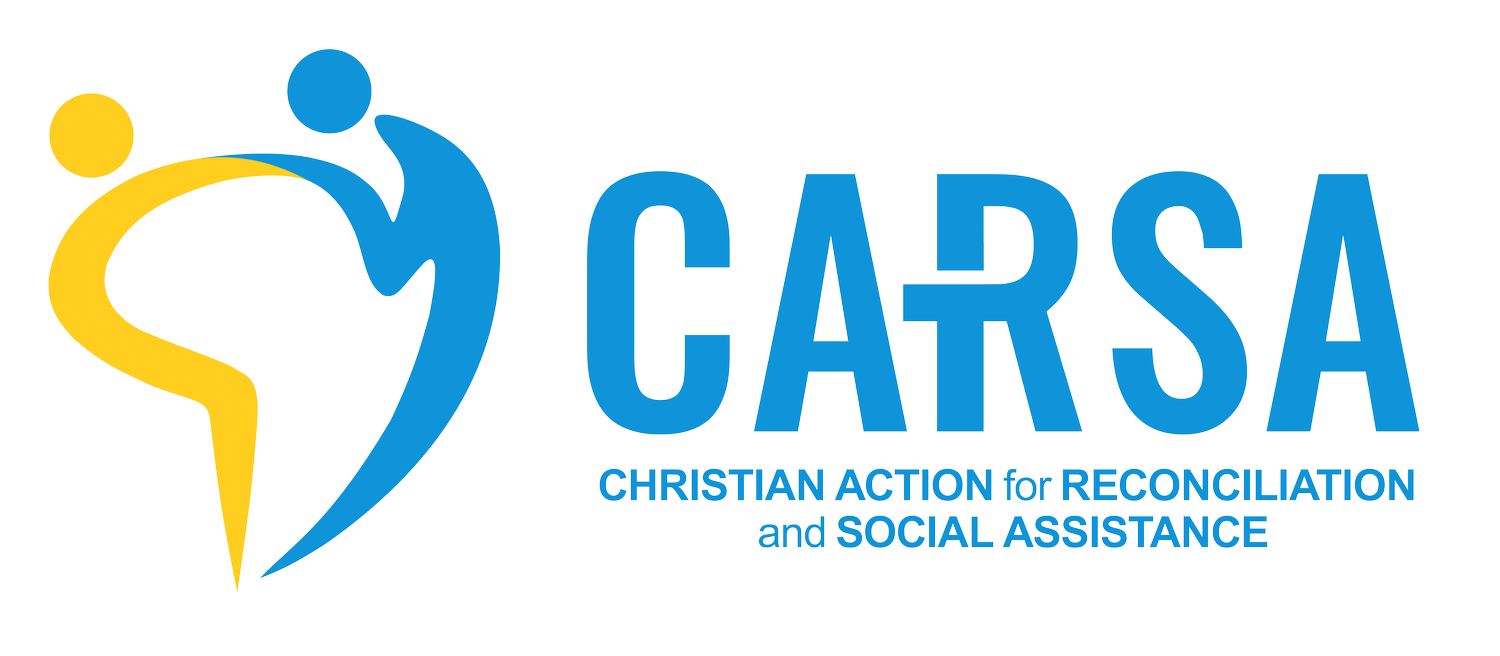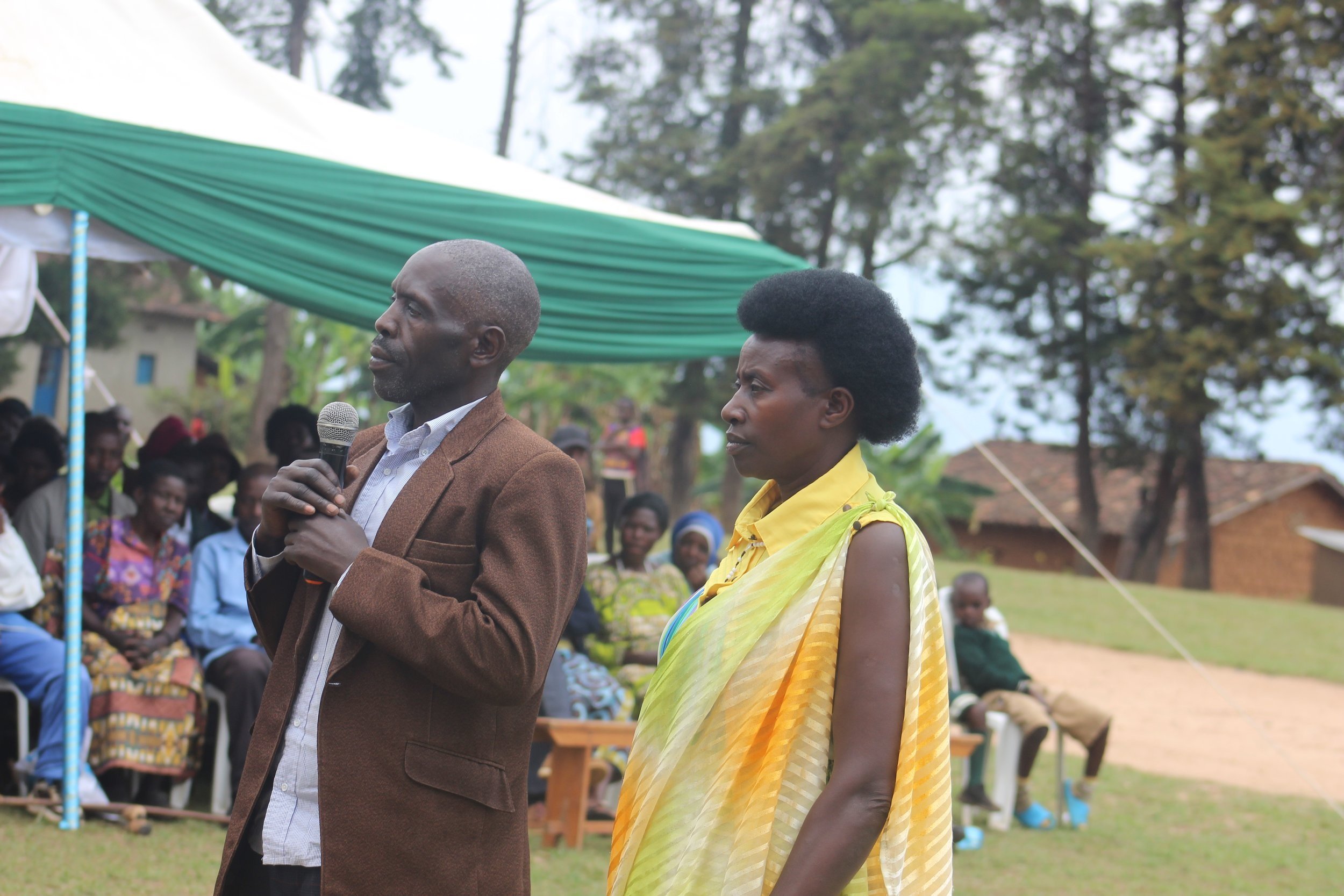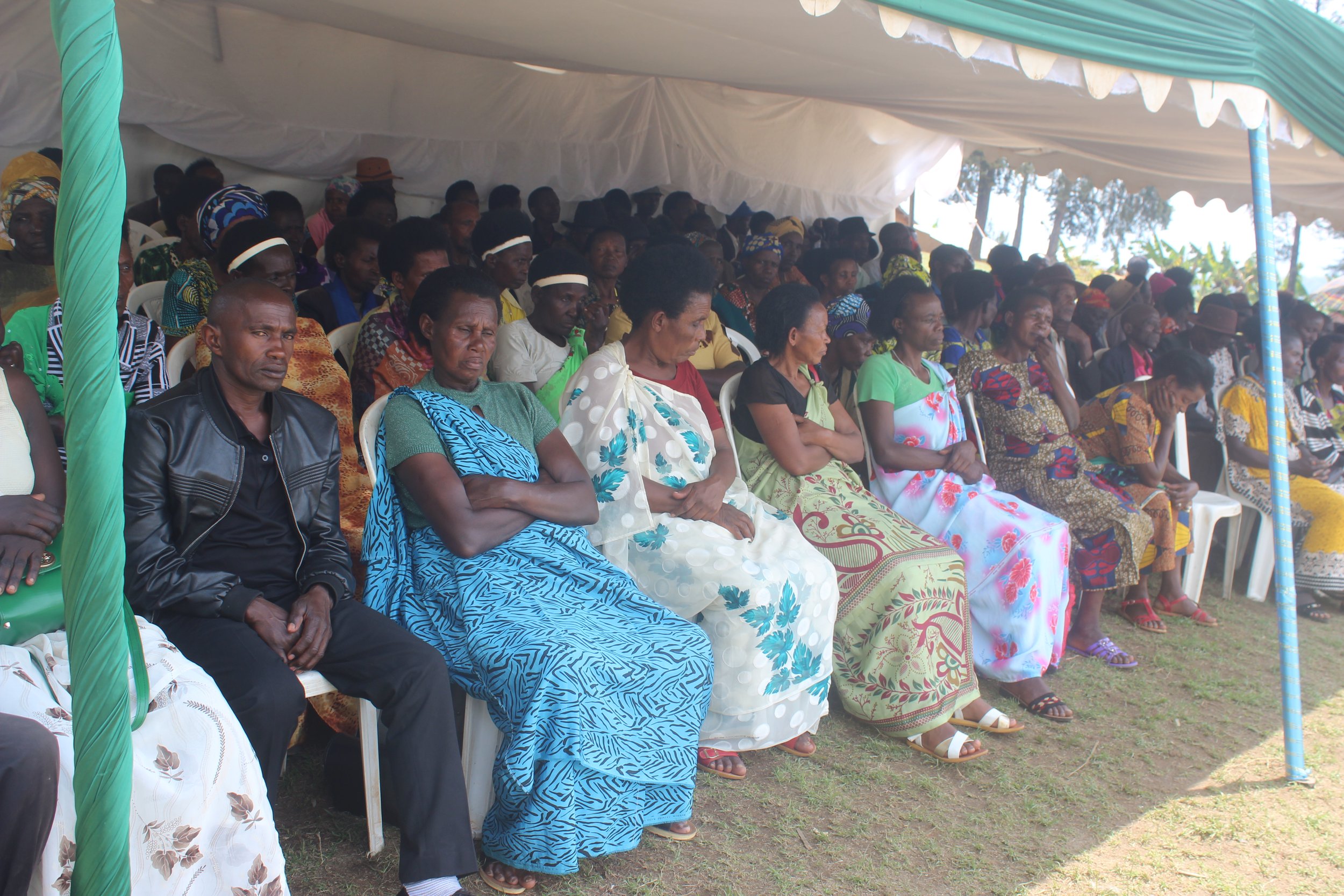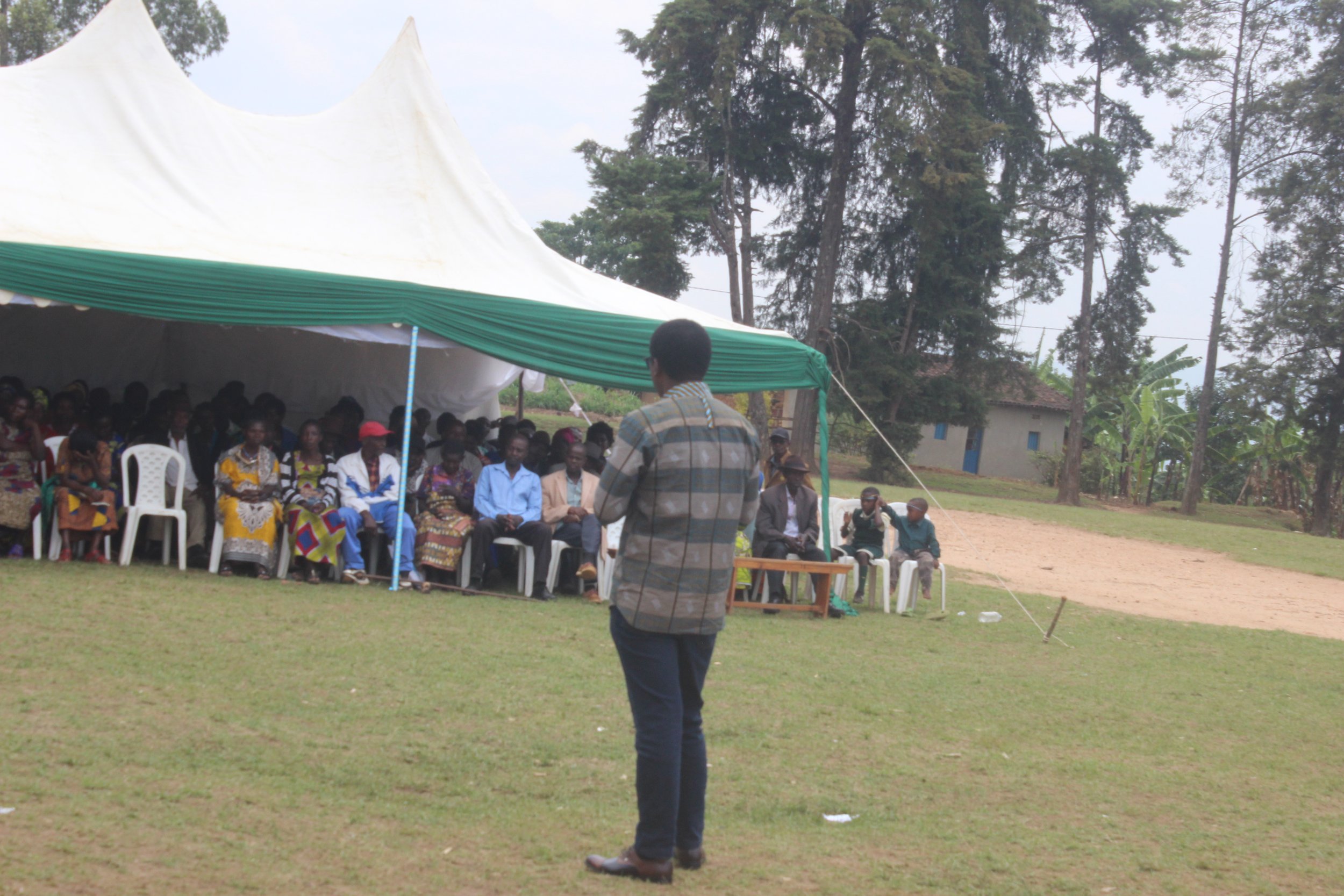CARSA's Initiatives enhance reconciliation, trauma healing, and cohesion among Genocide Survivors and perpetrators
On 15th September, Christian Actions for Reconciliation and Social Assistance (CARSA) celebrated its 20th Anniversary in Mushishiro Sector, Muhanga District. CARSA celebrates 20 years of serving the Rwandan community in the journey towards trauma healing, forgiveness, reconciliation, economic well-being, and addressing other societal issues that resulted from the effects of the 1994 Genocide against the Tutsi.
The event convened over 500 participants, consisting of mostly genocide survivors and perpetrators who are active members of Resilience Cell Groups (RCGs), family members, and other community members. During the event, a public confession was made by genocide perpetrators towards genocide survivors, their family members, and the community at large.
Yamuragiye Epiphanie is a genocide survivor, a beneficiary of CARSA, and an active member of RCG, which helped her to reconcile with Habyarima Eugene, among the genocide perpetrators who killed her family, and both of them were there at the event and able to share the fabulous story of their extreme forgiveness and trauma healing journey. They witnessed how the organization helped them tremendously in various ways especially in dealing with their inner wound debridement.
During the Genocide against the Tutsi in 1994, 11 people from Yamuragiye's family were killed in one day. After the horror, she had never thought of forgiving anyone; she had rather sworn to revenge on anyone responsible for her family's massacre.
She lived a lonely, hateful, and resentful life and endeavoured to engage in distinguishing reconciliation and trauma healing initiatives. She never worked until she heard of CARSA and later joined its Reconciliation Workshop, where she sat face-to-face with her perpetrators, including Habyarima.
Yamuragiye stated that "after living with that trauma for quite some years, I finally met CARSA, empowered me together with my perpetrator, cared about me every time and for a long time, even they visited us at our homes, taught us more about trauma healing, and the lessons were so supportive. Today, we have indeed found unity and reconciliation among us. There at the workshop, during the dialogue session, Habyarima was able to make an apology, confessed his crime to me and asked for forgiveness. Through his expression I could find that he did it with a sincere heart, that is how I finally forgave him. We are now true friends."
Yamuragiye witnessed that, following several sessions, her life style completely changed. She started being social, loving, and reconciling with the people who killed her family. She started calling on other survivors to forgive and reconcile with the perpetrators for a better future for the country.
As a consequence of his genocide crime, Habyaruma, from the Mushishiro Sector, was sentenced for 10 years and he was responsible for killing Yamuragiye's relatives, and he does not regret having gone to jail because he "deserved it."
While Habyarimana was in prison and even in the face of community restorative justice (Gacaca), he confessed his crimes and tried to ask for forgiveness to all those affected by his cruelty.
When he returned to the community, the process of reintegration was not a walkover.His heart was restless until he joined the CARSA's Reconciliation Workshop, which has a holistic approach of bringing together survivors of the genocide, perpetrators, and their relatives in healing dialogues that lead to truth-telling and strengthened forgiveness to start a path to reconciliation.
"I never rested in my heart. Every time I was in the community and walked by the people, they looked at me. This got me scared, and I thought they were seeing the killer in me," Habyarima said.
"After attending CARSA's training, my heart opened up; I am now healed; I am no longer scared; even Yamuragiye is no longer struggling with trauma; we are now united as one," Habyarima pointed out.
In the group, Habyarima met with genocide survivors, including Yamuragiye Epiphanie, whose relatives he had killed. At one of the meetings, Habyarima dared to apologize. Habyarima says that the forgiveness was a miracle since it enabled him to live in harmony with Yamuragiye and with a restful heart in the community.
In Mushishiro Sector, CARSA has 8 operational RCGs that consist of 275 active members. Through the Cow for Peace intervention, CARSA has distributed 35 cows, and so far, 26 grown-up calves have been given to former perpetrators by their genocide survivors as a sign of forgiveness. 70 families have been impacted by the cow sharing and enhanced their journey towards reconciliation and social well-being among group members.
RCG made up 20–30 individuals for reconciliation. They hold frequent meetings where members can talk about their healing journeys and offer one another financial, emotional, and physical support. As a result, the cell groups act as a platform for rebuilding community trust and its base.
After all, the survivor-offender pair is given the cow. Although it remains in the survivor's family, both parties are responsible for taking care of it. This makes it possible for the offender’s family to frequently visit the victim's home. The pair continues to mend their relationship as they take care of the cow under the direction of their cell group. The family of the perpetrator receives the first calf that is born.
Christophe Mbonyingabo, CARSA’s Executive Director, was delivering his speech to the congregation.






